Business Management 2: Organizational Theory and Behavior Analysis
VerifiedAdded on 2023/01/19
|5
|920
|77
Homework Assignment
AI Summary
This assignment delves into the realm of organizational theory and its practical application in modern business management. It begins by contrasting the classical and contemporary approaches to management, specifically focusing on the bureaucracy and contingency theories. The assignment then examines the evolving role of managers, highlighting changes influenced by both classical and contemporary perspectives, such as the emphasis on technical qualifications, written guidelines, increased cooperation, and rewarding behavior. It further addresses significant challenges like globalization and ethical considerations. Organizational theory's importance is underscored by its ability to identify corporate practices and enable organizational growth. Key managerial attributes such as accountability, leveraging human capital, and effective communication are also discussed. The assignment concludes with a reflection on the manager's responsibilities and the application of these concepts in a workplace scenario, emphasizing the importance of ethics, employee satisfaction, and communication strategies.
1 out of 5
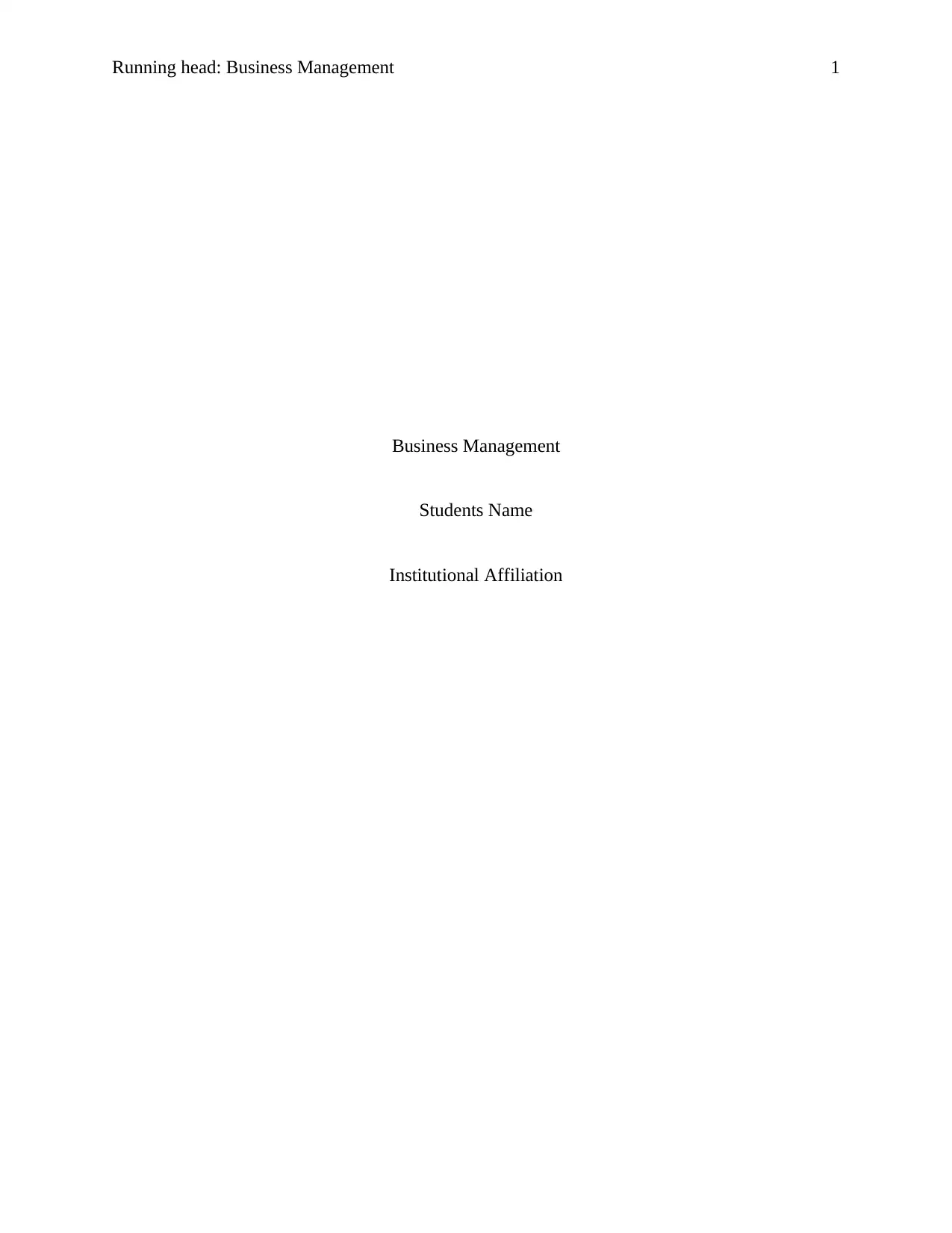
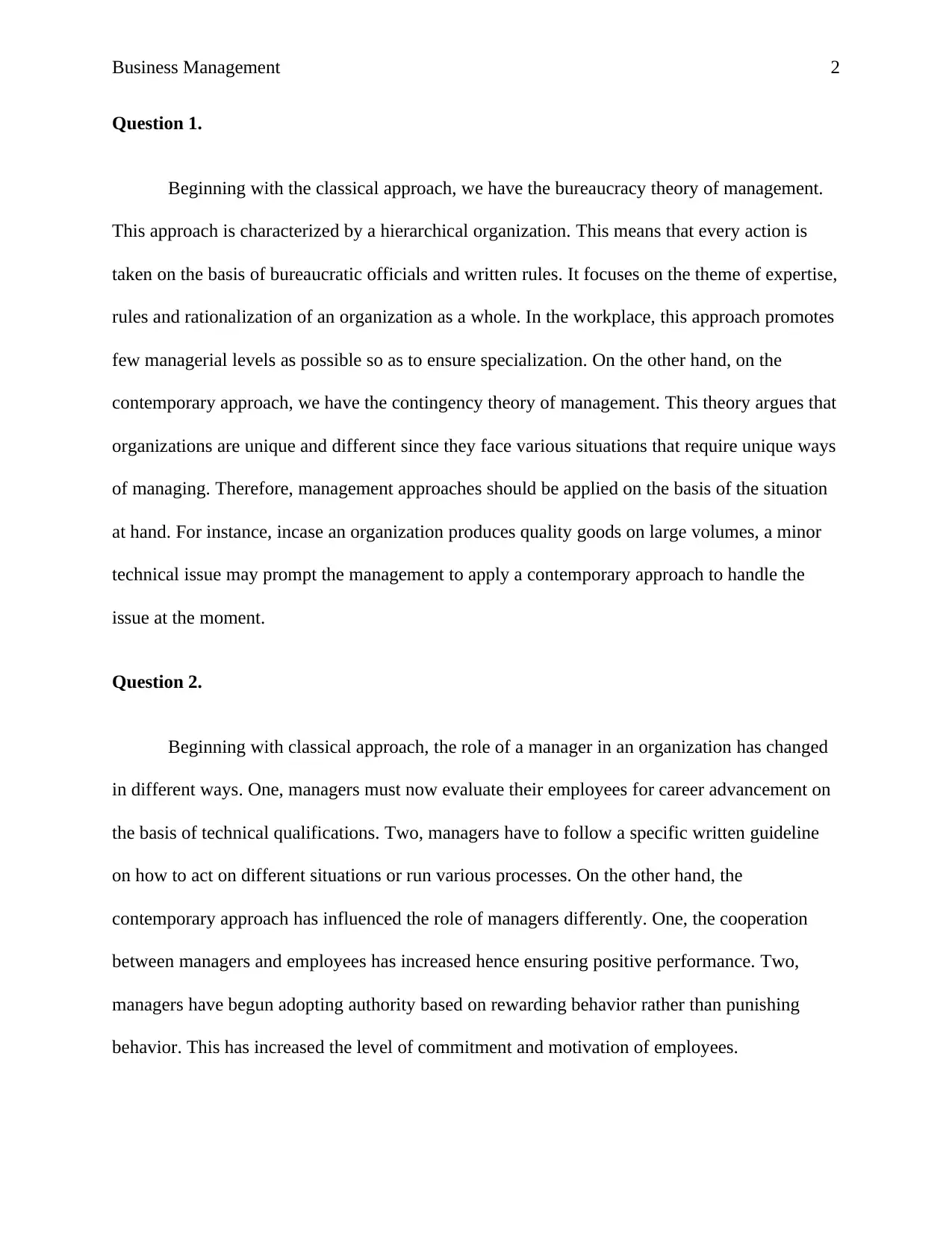
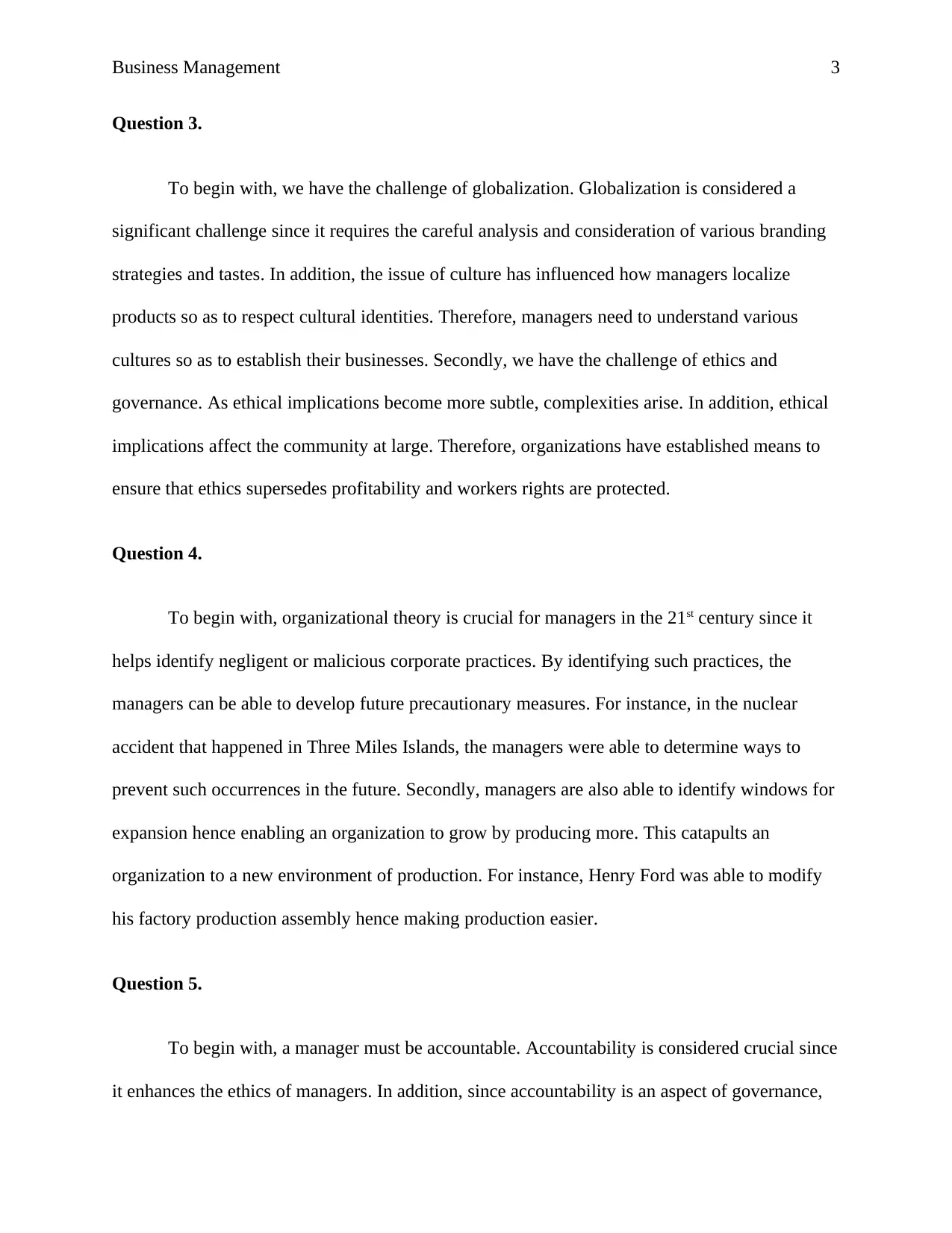

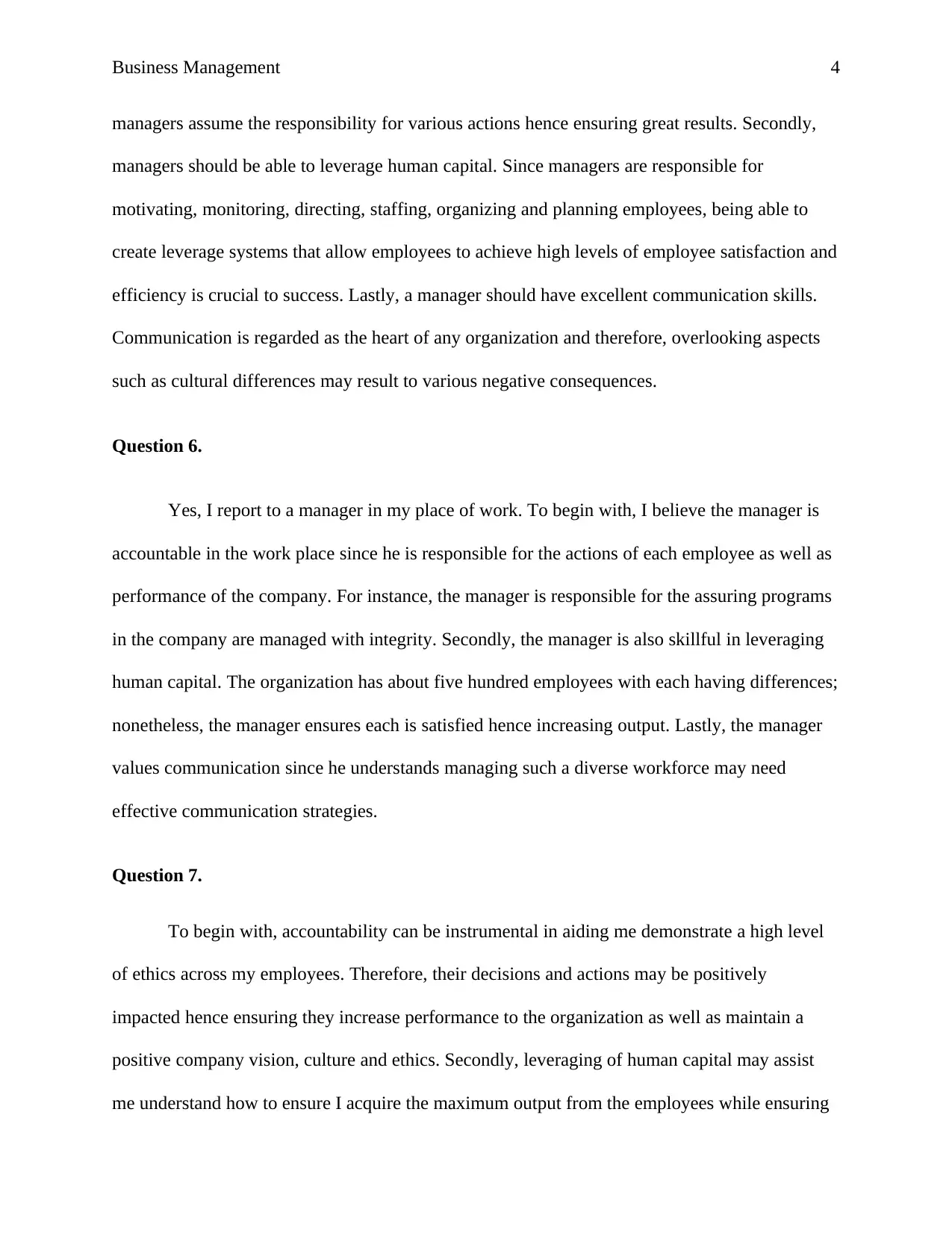
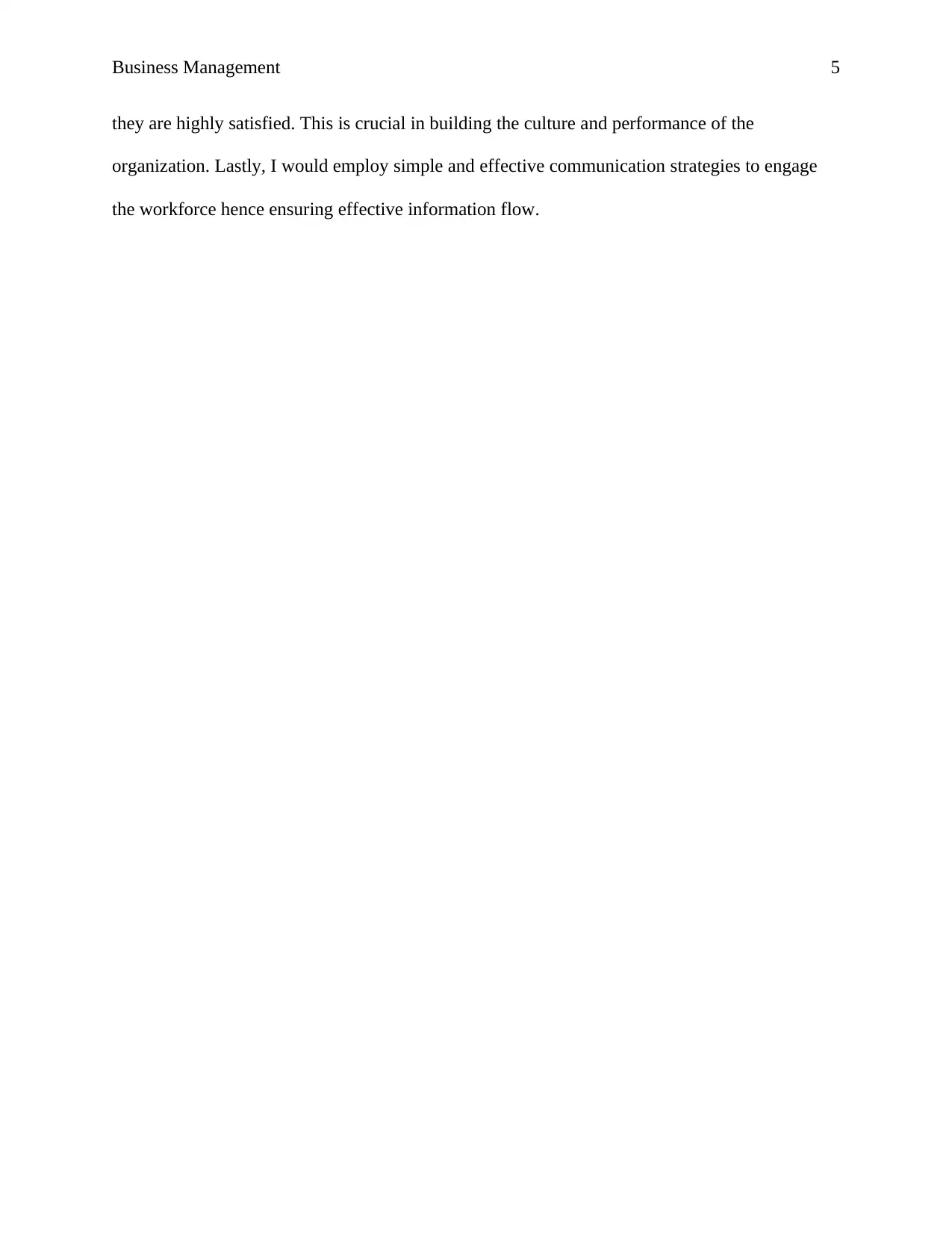






![[object Object]](/_next/static/media/star-bottom.7253800d.svg)